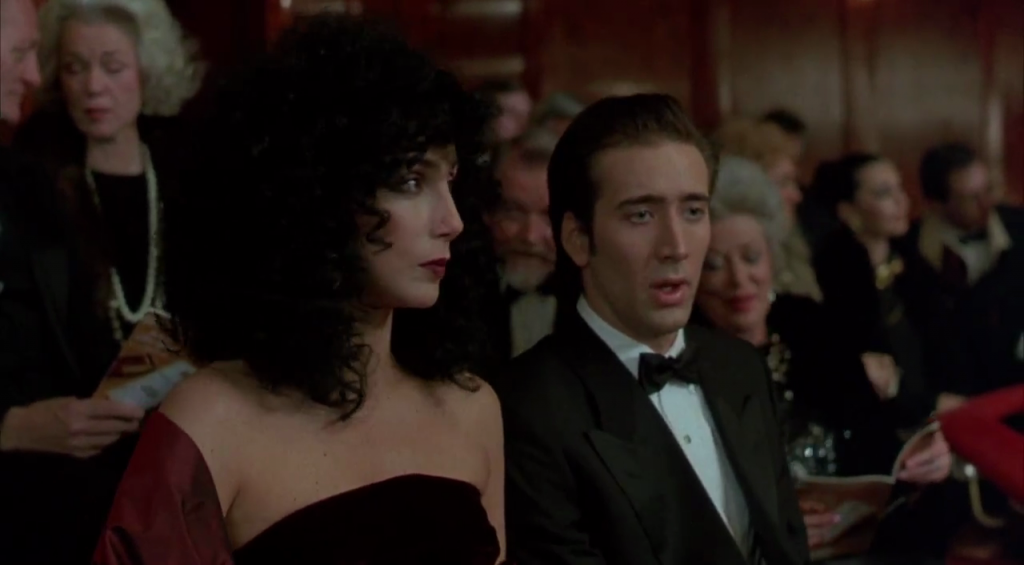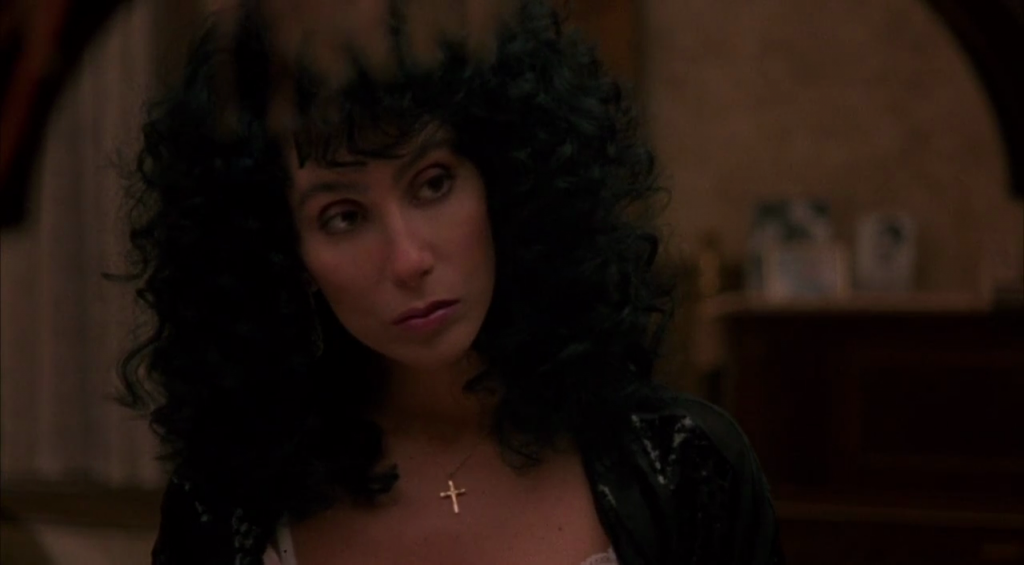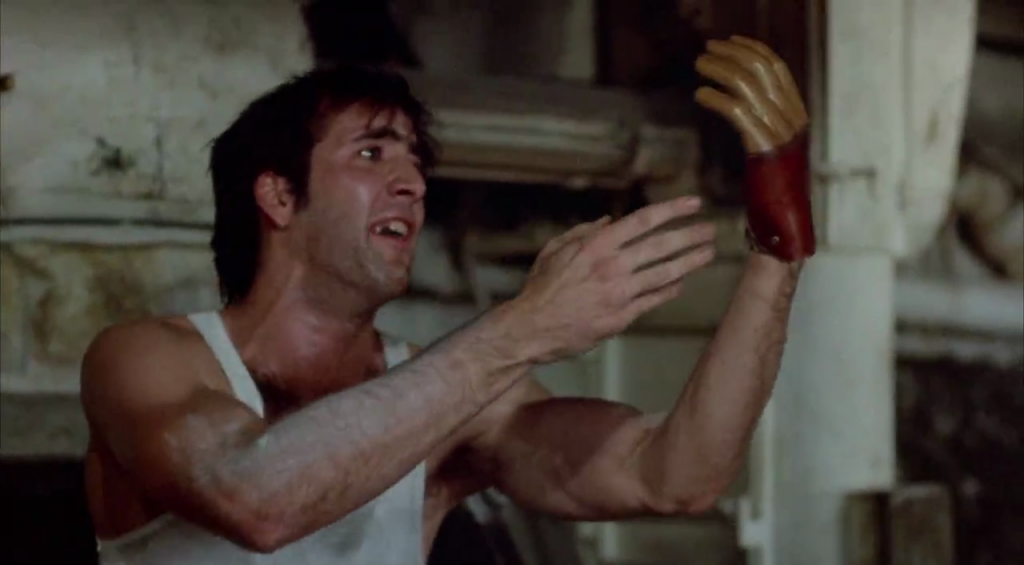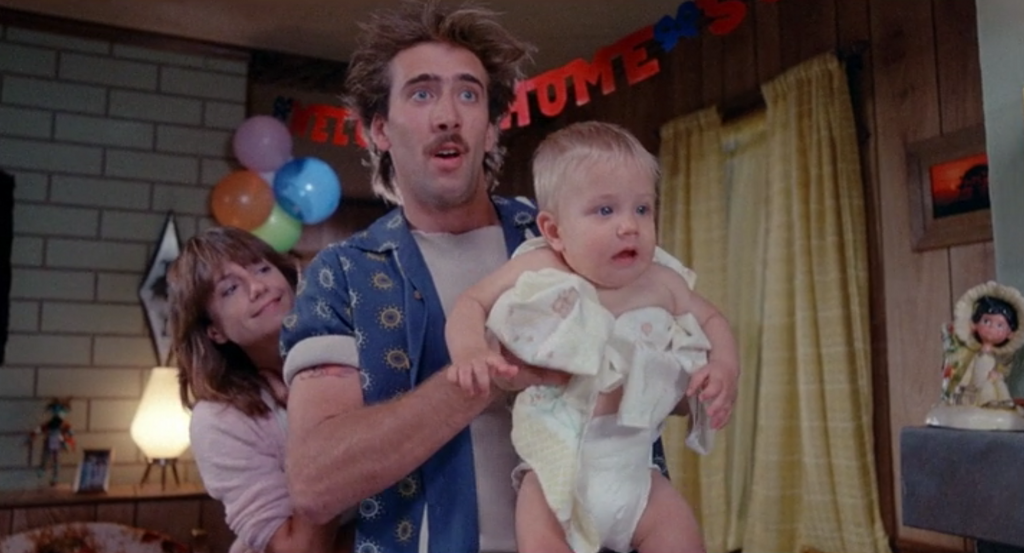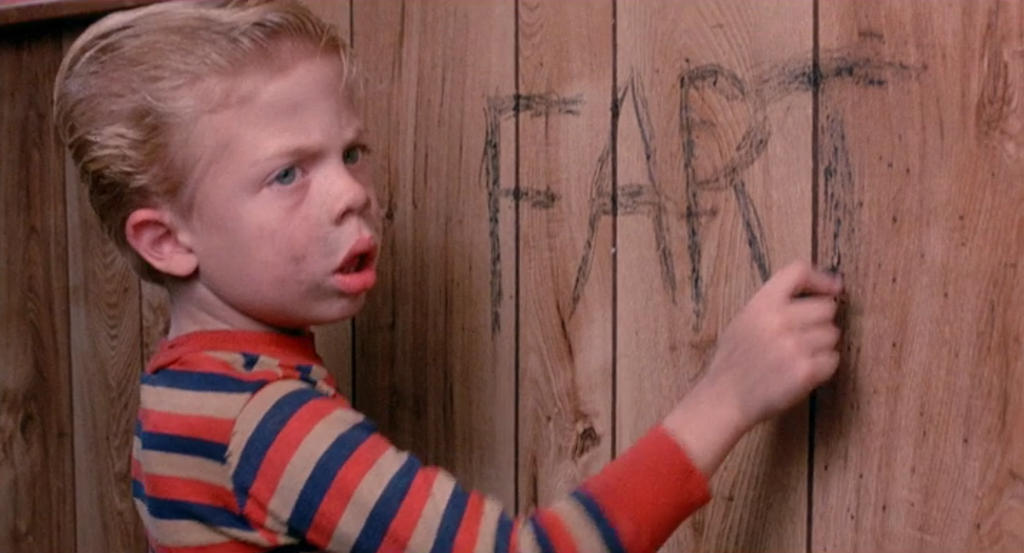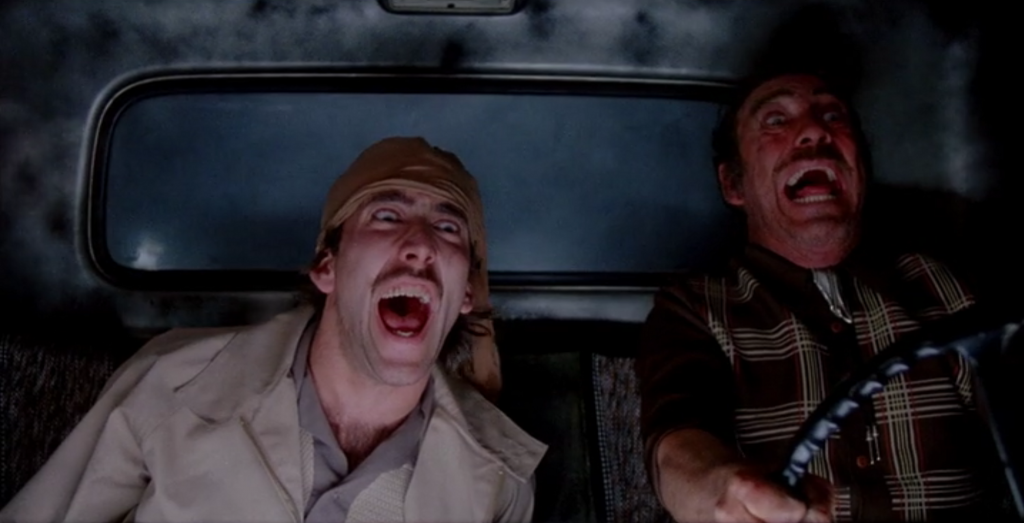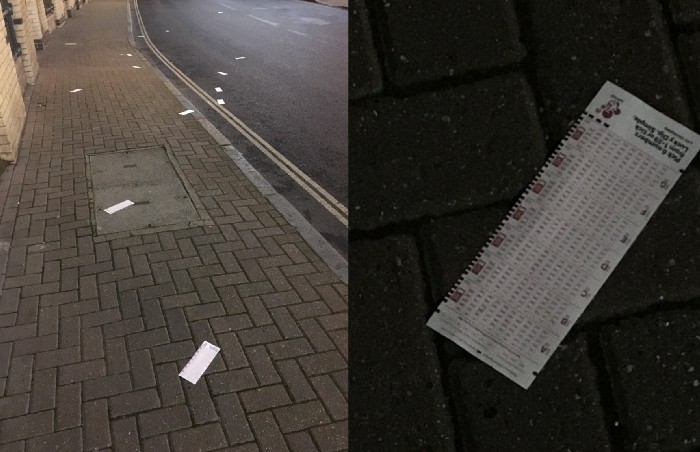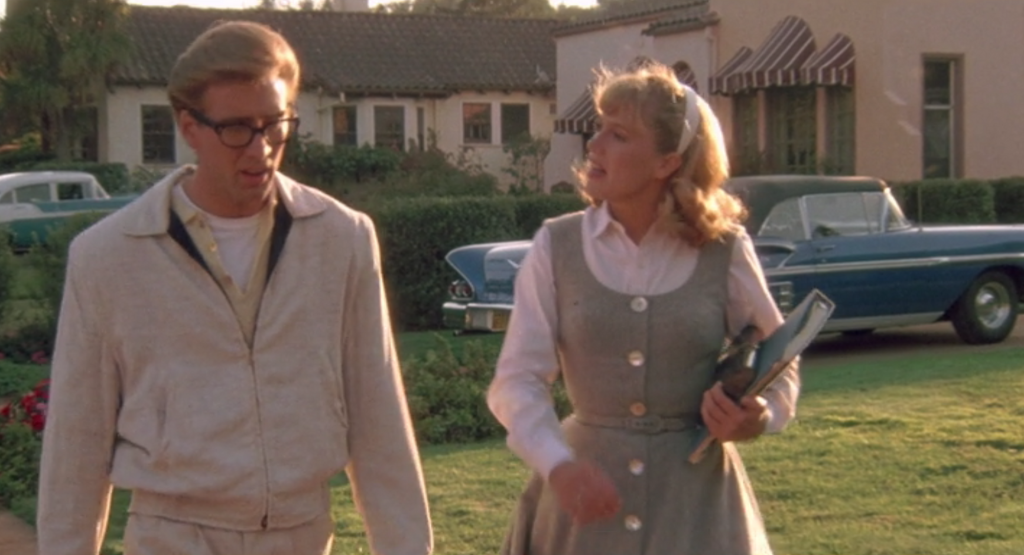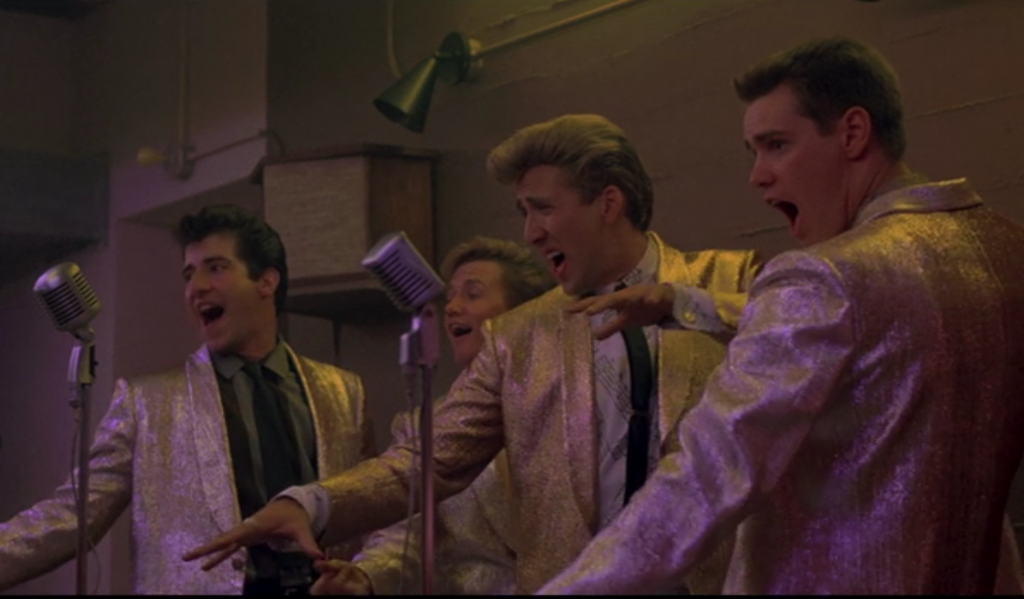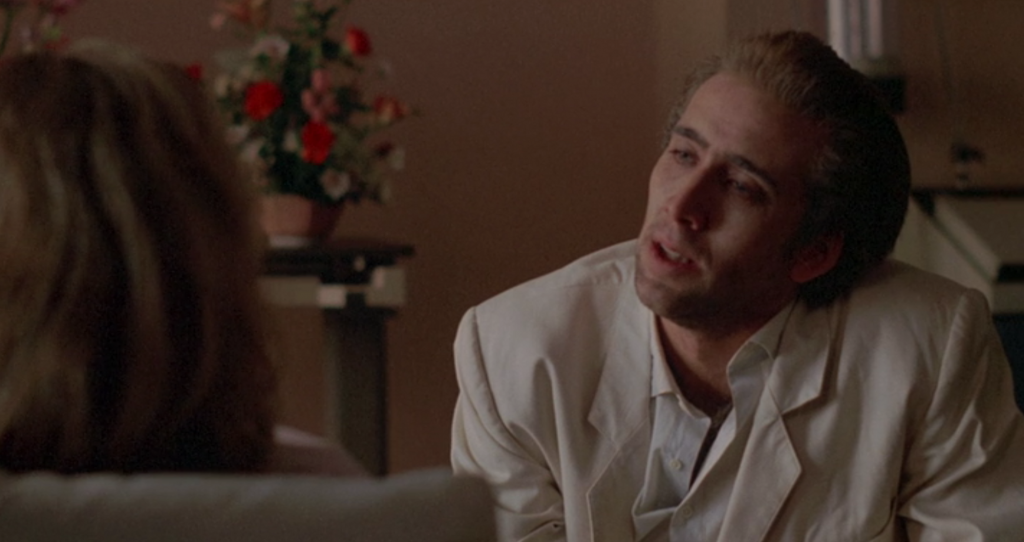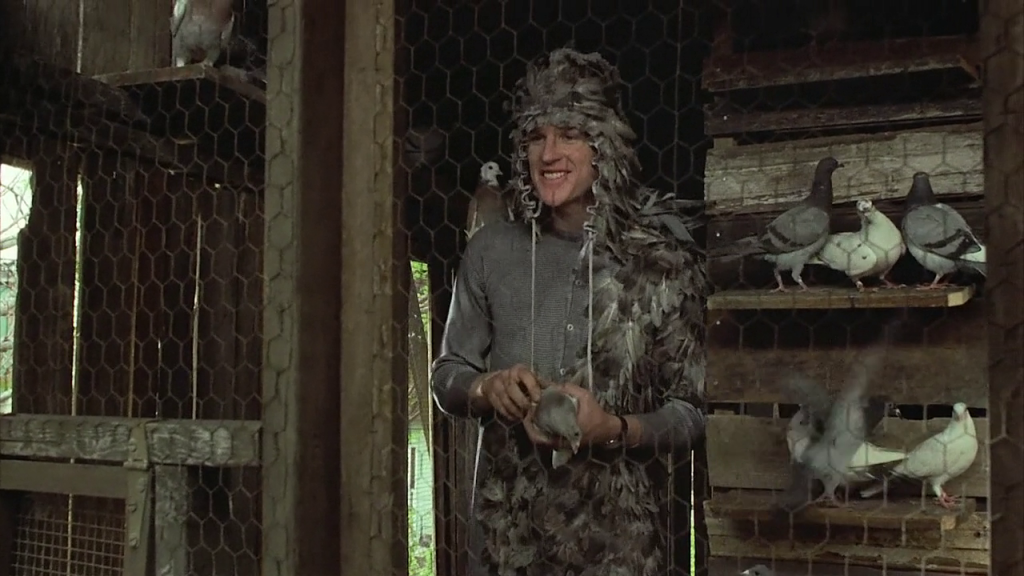Hello! My name is Ed and I am trying to win the lottery by watching Nicolas Cage films.
The problem with trying to predict lottery numbers by watching every Nicolas Cage film in order is that you have to watch every Nicolas Cage film in order, even if they are films so bad that they went straight to video at the time and are of so little note that they have never been released on DVD. Such as Never on Tuesday
Seriously, what hasn’t been released on DVD, in 2016? It’s basically this film and the entire back catalogue of Little and Large. Although in that case the inexplicability is more that they ever achieved mainstream popularity — watch some videos on YouTube, it is mind-bending stuff. There’s this one where they’re dressed up like Status Quo and Bob Holness from Blockbusters is there as well and they’re just pretending to play Status Quo songs and that’s the entire joke. It’s basically performance art. Sadly Nicolas Cage never appeared in a Little and Large show, as far as I can tell.
The feasibility of actually watching Never on Tuesday was a major concern when I initially tried to work out how viable this whole project was. After all, I definitely can’t win the lottery by watching all of the Nicolas Cage films if I haven’t watched all of the Nicolas Cage films. ‘Thankfully’ after a great deal of searching I managed to get hold of a rather blurry, panned and scanned, copy of it.
The first thing to note is that this is stretching the definition of “a Nicolas Cage film” — he appears, uncredited, with a false nose and wig, as a man who drives up in a sports car, gets out of it, wheezes, flails and giggles a bit, then gets back in his sports car and drives away again.

This is one of a series of cameos that punctuate Never on Tuesday (other turns include Charlie Sheen and Judd Nelson), a rather slight film about three people stuck on a desert roadside after a car accident.
Eddie and Matt (Peter Berg – who now directs things like that film based on the game Battleships, and Andrew Lauer – later in justifiably forgotten Lea Thompson sitcom Caroline In The City) are sex-crazed teenage boys who think driving to LA will in and of itself get them laid for some reason. They decide that divving about while driving is a good idea and crash into another car, stranding themselves and the other driver. Who is called Tuesday. And is Claudia Christian, from off of Babylon 5 (the best TV series ever, according to people who drink Humbrol paint) and many other even worse things. The boys would like to do a sex with her, as the film subtly indicates by pointing the camera at her boobs.

Unfortunately for them, she is a lesbian – what bad luck, because as we all know women who aren’t lesbians love to have the sex with strange men who’ve just wrecked their cars!
Aforementioned series of cameos aside, the gist of pretty much the entire film is this: the wet men objectify the woman, and the sassy woman says something sarcastic about the men. Insert your own joke about Steven Moffat scripts here.
You can see what first-time director Adam Rifkin is going for – a cheap, very simple set up carried by the humour and the relationships between the characters. But there’s just nothing there – the jokes are at best listless and at worst offhandedly sexist and homophobic, while the characters barely exist. Tuesday at one point asks why the boys are even friends and the response might as well be, “I don’t know, but it says we are in the script.”

I feel a bit bad for kicking something that has essentially been dumped in the bin of cinematic history anyway, but Never on Tuesday really is appallingly bad. Despite this, a rerelease on DVD was at one point scheduled, before the company responsible went bust. Which is probably not a very good omen, but still, it’s time to play the lottery.
THE NUMBERS
6 — There are 6 notable uncredited cameos: Nicolas Cage, Charlie Sheen, Emilio Estevez, Judd Nelson, Cary Elwes and Gilbert Gottfried.
7 — The boys’ car numberplate is 529 T7H.
8 — Her numberplate has an 8 on the end. Look, there really aren’t a lot of numbers to pick from in this thing.
9 — One of boys wears size 9 Reeboks. I do not care to remember which one.
20 — Gilbert Gottfried plays a brush salesman. It is a special brush. Our heroes buy a brush off of him for 20 dollars — well, 19.95, but he keeps the change, promising to return the nickel if he ever sees them again. I suspect this to be a lie!
30 — Nicolas Cage’s total screen time is less than 30 seconds. Never on Tuesday lasts over 90 minutes. The average life expectancy for a British male is 79 years.
THE RESULT
Lottery draw: 2105
Date: Wednesday 24 February, 2016
Jackpot: £2,275,802
Draw machine: Arthur
Ball set: 1
Balls drawn: 4,14,18,19,26,27
Bonus ball: 25
Numbers selected: 6,7,8,9,20,30
Matching balls: 0
Numbers selected (lucky dip): N/A
Matching balls (lucky dip): N/A
Winnings: £0 (£0 to date)
Total Profit/Loss: £-24
Well, nothing. I mean in some ways it would have been annoying if I’d won because of a film Nicolas Cage isn’t really in it, but I imagine the 2 million quid would have gone some way to making up for it.
Still, onwards and upwards, to something that Nicolas Cage is definitely in.
NEXT TIME ON NICOLAS CAGE:
Vampire’s Kiss. Even if you haven’t seen it, you have almost certainly seen the memes.
